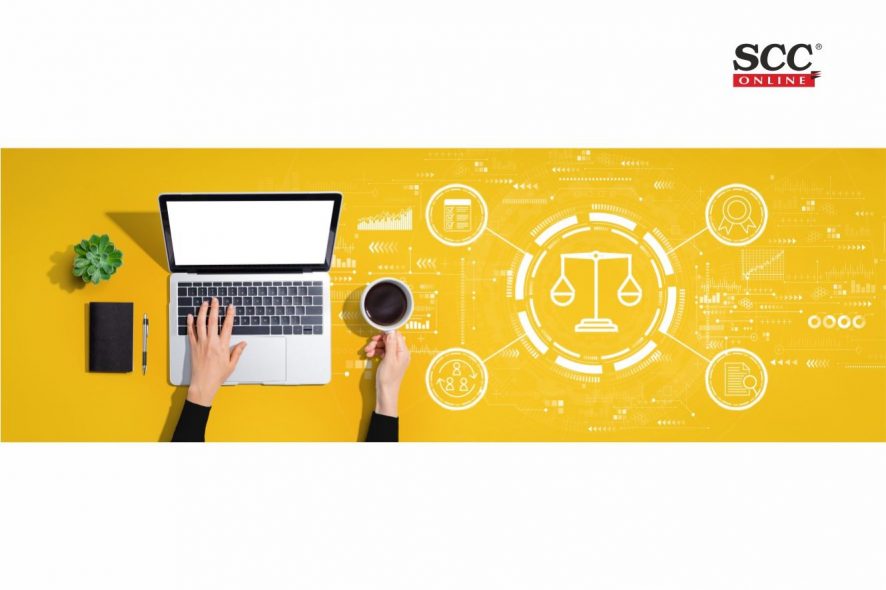As places that tend to be extremely crowded like the trial courts, appellate courts, consumer forums, and tribunals across India continue to be deserted since the lockdown in March, there is a compelling argument to adopt this as a new normal.
As the courts encourage cases that were heard in front of a Judge to be taken up for hearing via videoconferencing, lawyers and their clients need to embrace virtual courtrooms to ensure the continuity of the judicial system. Even corporate lawyers who typically only offer legal advice and prepare legal documents need to learn about the technology available for the legal system to carry on serving their clients.
Lawyers need to use this time to read and learn about legal technology, which will enable them to work effectively and efficiently no matter where they are. This includes equipments for working both remotely and from the office, case tracking, videoconference calls, drafting and negotiating contracts.
If you are in the legal profession and looking to setup or augment your office in line with the current virtual requirements with the latest legal tech, here are some ideas to help streamline the process.
Invest in smart office solutions
With so many people working remotely, there is an increasing need to invest in the latest tools to assist in working from home and connecting seamlessly. Most people have atleast one computer and a high-speed internet connection in their homes. However, there are means to augment the performance of these devices for better connectivity and efficiency. For example:
- It’s better to have a laptop with a docking system rather than a desktop. This will help in mobility and, if need be, you can connect an external monitor, mouse to make it more comfortable to work in your home office. If need be, as second screen can be added to help in reviewing documents side by side. My personal experience is that productivity increases considerably if these methods are used.
- While nothing can compare with a well-stocked library, it may be time your office switches to online legal/business research tools due to the time and risk associated with ordering books or copying passages related to current cases the firm is working on.
- It is essential to purchase licences for conference call software. Microsoft Teams, Google Meet, and Zoom are some of the most popular options for videoconference calls and meetings with clients. You can even record the sessions for future use. Microsoft Teams even helps reduce email chains as you can share documents among your team of advocates, paralegals, and even with clients. Microsoft Teams also allows multiple people to collaborate and work on documents simultaneously.
- For videoconferences, whether it is appearing in a virtual court, arbitration, or a client meeting, ensure your room is well lit, with no bright light facing the camera, and ensure your camera isn’t facing the window. This will impact the quality of the video and therefore the conversation. Invest in a high-quality external speakerphone or a mic and speakers for calls lasting more than an hour. Computer speakers and mics are not as effective, and putting headphones on for hours can potentially damage your eardrums.
Implement a knowledge management system
While knowledge management (KM) is considered a function for large law firms, it remains elusive to solo practitioners. Generally, large law firms have an established KM department where professional support lawyers are responsible for research, using tools, and managing knowledge for the entire firm.
I highly recommend every firm, no matter the size, invest in developing a KM department to assist in the cases. There is no reason to buy sophisticated tools, so long as you follow my recommendations on some basic procedures:
- KM should be stored on cloud services like Google Drive or Microsoft One Drive to provide every member of the firm access to any needed documents by logging in with the provided credentials. In addition, both servers have features limiting access to different files/folders to selected individuals depending on the confidentiality requirements.
- Ensure all the research documents, whether draft or final, used or unused, are appropriately named and stored in a single folder that can be easily located for later reference. It is also a good idea to invest in a high quality PDF convertor and/or PDF scanner. Free tools available on the internet often leave their brand as watermark and even the confidentiality of the document is lost once you upload it on the web. If you still choose to use the freewares please at least ensure they are not banned by the Government. For example, recently a Judge was displeased when an advocate used one of these banned freeware scanners.
- Create a folder containing necessary documents for clients or legal research accessible to everyone who works in the firm. Make sure you name these in a clear and concise manner. There is no one size fits all when it comes to how to name files and folders. However, there does need to be consistency throughout the firm on how to name them. New joiners, including interns,should be briefed within a week of joining on how to name and file everything to ensure the continuity of the filing system. This may sound a lot of work, but this is a basic practice in managing the knowledge of a firm and needs to become the “habit” of the firm. Whenever you get a new client, it is far more time-conscious to refer to similar former cases rather than starting all the research from scratch. For larger firms where KM is already established, I recommend going a step further and evaluating how artificial intelligence and machine learning tools can help automate the KM process to provide the relevant information at the click of a button. For example, in a Mergers and Acquisitions exercise, looking for specific information in thousands of contract documents can be a tedious task. Thankfully, today there are tools that can extract this information for you in a fraction of the time it would take a human to find it.
- Investing in case management software that stores every file related to each case/client in one place will be useful if you are a panel lawyer/retainer with multiple cases on a similar point of law. Case management software helps you segregate the files, track them, and creates alerts for the next hearing date. Today case management software can also help track your timesheets and bill clients.
- As automated tools become increasingly accurate, data extraction, creating the first draft of contract, redlining contracts, and workflows are becoming the new normal. Many large firms around the world are using these systems more effectively, and are delivering the desired results.
- A word of the warning – very few of us take the need for anti-virus or firewall protection seriously enough. Moving to an online platform with most, if not all, of the lawyer’s intellectual property stored on software requires that firms should invest in a good anti-virus software, as well as external storage devices to keep back-ups of important information. A simple web search can help you find some very good options are available at every price point, meaning smaller and newer firms can get the protection. Even back-ups can now be kept on a cloud server, so everyone should choose a model that suits them.
Go virtual
If you create a virtual office using the above tools, the strain of not meeting your clients face-to-face will be considerably less. In addition, moving to e-signatures or digital signatures, if permissible in law, will make the process smoother when meeting clients face-to-face isn’t possible.
While practicing law has always been based on the personal interactions between lawyers and clients, we need to move away from more traditional ways of practicing law, including in-person court dates, document signing, and meetings for case updates. Making this shift toward a more virtual space is fast, safe, and doesn’t require a face-to-face meeting.
Contract negotiation teams are created virtually now, and the negotiations are discussed and agreed via videoconference. Advocates, or anyone else for that matter, who are not used to working remotely will need to learn and adapt to this practice.
In summary, while we recover from the pandemic, the need to adopt a new normal, redraft the rules of the game, and play within them, while maintaining social distancing, is paramount to keeping the legal system operating as usual!
*Mani Agarwal is the Global Head of Contract Compliance & Optimization practice at Capgemini. He started his career as a litigation lawyer before taking up corporate assignments. He can be reached at mani.agarwal@capgemini.com. Views expressed are personal.







